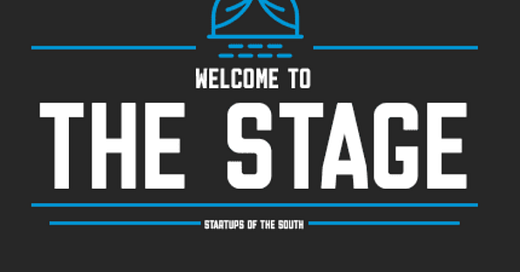

Startup Spotlight: Uptime Dynamics
Have you ever noticed an issue with something in the office building you work in? Or in your own home? Maybe a door is off its hinge or the faucet in the bathroom won’t work. For many professionals and homeowners, the answer is a resounding “yes.”
Even though it is a common issue, reports to the maintenance team or local handyman always seem to take forever to resolve due to a disorganized backlog of other items.
Well, that’s where Uptime Dynamics comes in. Uptime Dynamic’s platform allows for building occupiers and/or residents to easily report issues to maintenance. Maintenance can then properly track and manage any and all issues through Uptimes’s easy-to-use platform. It’s an entirely streamlined process for issue management.
Meet Tommy, co-founder, Uptime Dynamics
Tommy is a Portland, Maine native and graduate of the US Merchant Marine Academy, where he studied marine systems engineering. After graduation, Tommy spent six years on ships in the Gulf of Mexico while also earning his MBA from St. Josephs’s College of Maine. Eventually, he met his now-fiance, Maggie Belshe (Venture for America’15 and the new leader of Endeavor Birmingham) and settled in Birmingham.
Before starting Uptime Dynamics, Tommy spent 18 months as a project manager at BLOX where he met his now co-founder, Tom Woodruff. Eventually, the two struck it out on their own to start Uptime Dynamics. Uptime’s mission is to make issue management simple, actionable and accessible to everyone by connecting networks and making communication seamless for private and commercial spaces.
Tommy and his team are a group I have a ton of respect for and can rely on for advice when I need it. I can’t wait to see where they take this great venture. I am excited to share their story with you!
What's been the biggest challenge you've faced as a founder?
My single biggest challenge has been uncovering what product-market fit feels like. It has taken us a year and several pivots to begin to understand the phycological side of sales, startups, and product-market fit.
Just because you have a superior product, a better approach, or can solve a problem doesn’t mean you have product-market fit. The challenge to understand what people want and more importantly why people want it has been tough. While we are closer than ever to product-market fit, it is obvious that we still have a lot to learn about our product, customers, and market!
Is there someone or something that you rely on to get through the tough days?
The great thing about starting in the South is the current interest in the startup ecosystem. There is no shortage of mentors willing to share advice or time. When I have a tough day, have a strategy question, or don’t understand something I can just walk down the hall to talk with Mark or Lionel, two of our mentors. They are incredibly generous with their time and offer unparalleled support.
When this external support is combined with the internal support of our team and families, tough days quickly turn into strategy sessions to work through our doubts or failures.
If you could change something about the tech ecosystem in the Southeast, what would it be? Why?
As someone who is gripping onto the edge of the entrepreneurial scene with white knuckles, I find it equal parts rewarding and frustrating.
I personally find it hard to access people who have successfully grown younger tech-based startups (because they are all still in the middle of running their companies). Resources are plentiful from more traditional and established companies, but in the trenches resources and advice has proven scarce.
As an example, trying to find a knowledge base to discuss acquiring the first 100 paying customers or running a lean marketing campaign is challenging. Yet there is ample advice on raising money, but very little advice on how to actually make money from our service or clients.
If I could change one thing it would be to create a community of knowledge resources for very early-stage companies operating on thin budgets. I believe it would close a large gap in the path to sustainability for a lot of startups. A system is only as good as its weakest component, and chasing capital before finding product-market fit has proven to be a recipe for disaster for young startups in Birmingham.
Why start your company now?
Time, people, and money. From my experience, those three resources are rarely available concurrently. While it took a lot of planning and some luck, we were able to find the right people, at the right time, and get accepted into Velocity Accelerator.
While deciding to start a company with no promise of income is not a light decision. We are passionate about the problem we are solving, and our team possesses the skills needed to solve it. With a focus and the beginnings of the product-market fit, we are continuing to execute and continue to drill down our market.
Want to learn more? Head to UptimeDynamics.com to book a demo. Make sure to check out their future product, HomeTeam in the near future as well!



